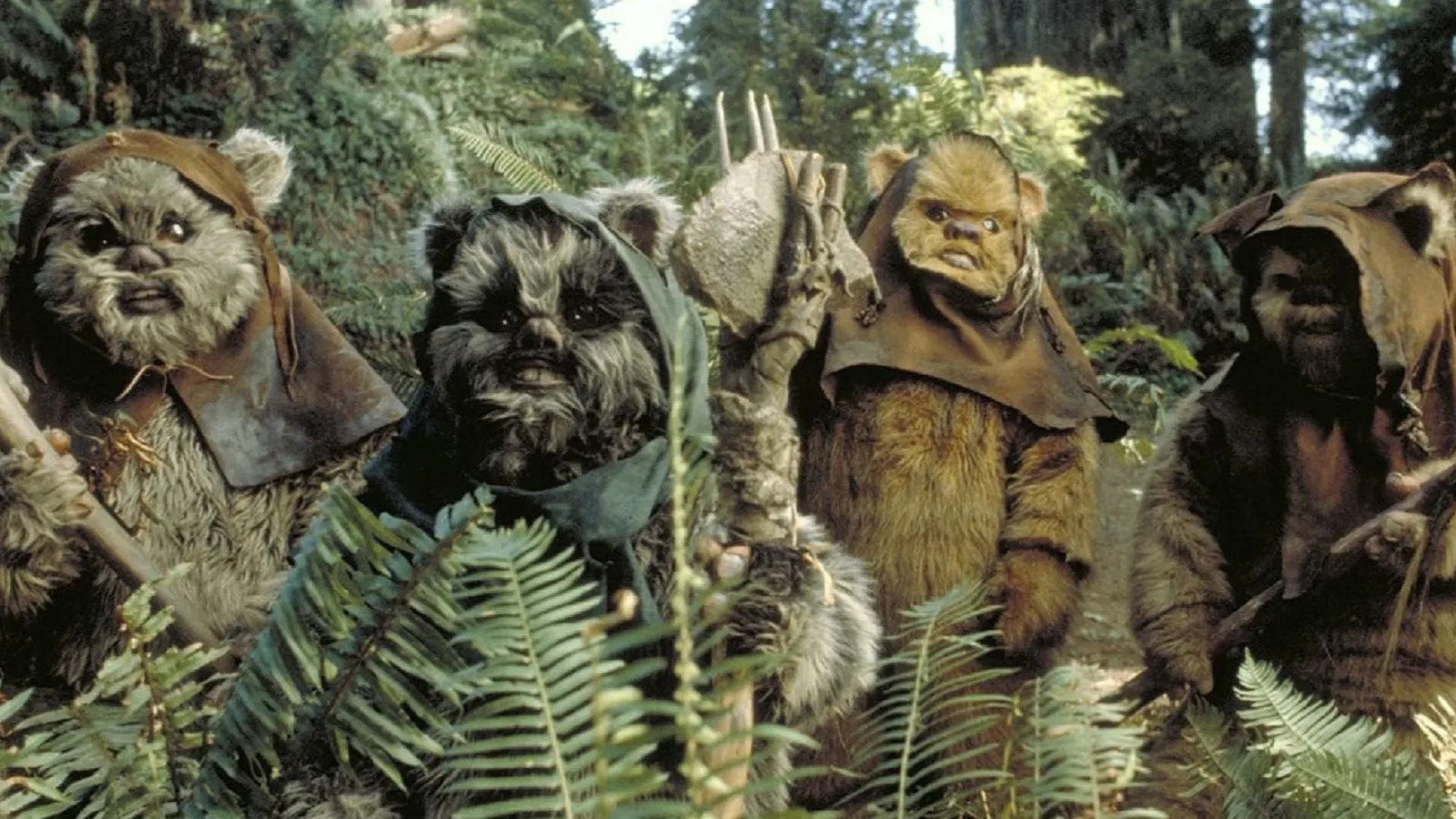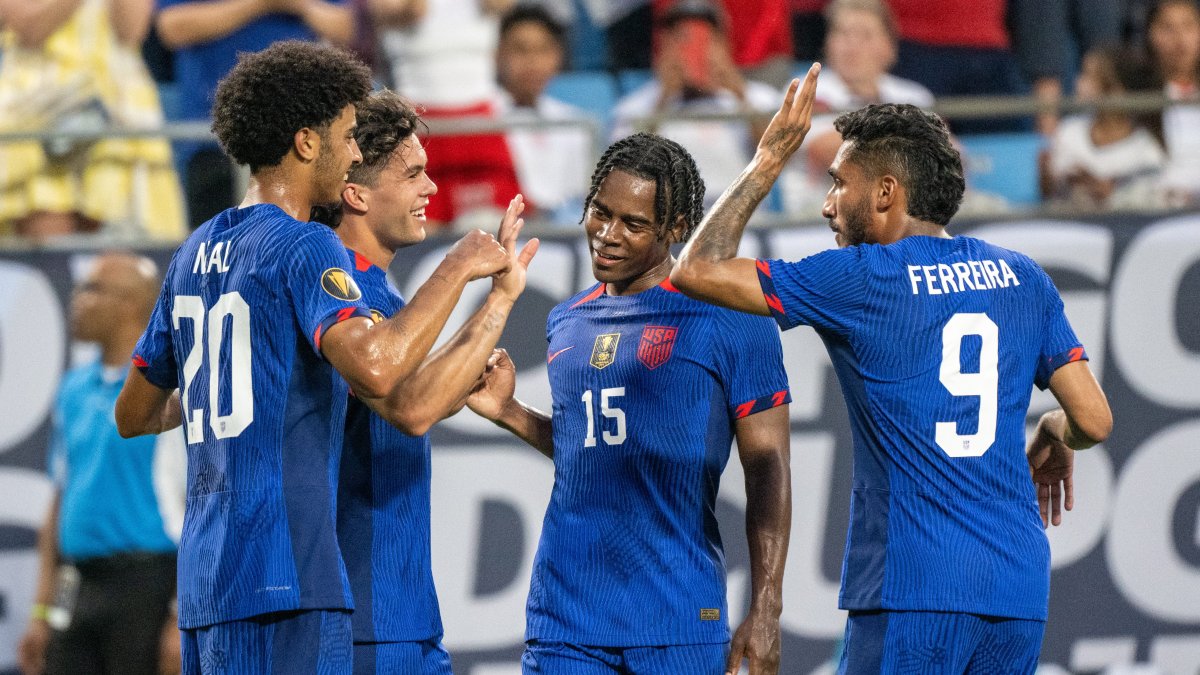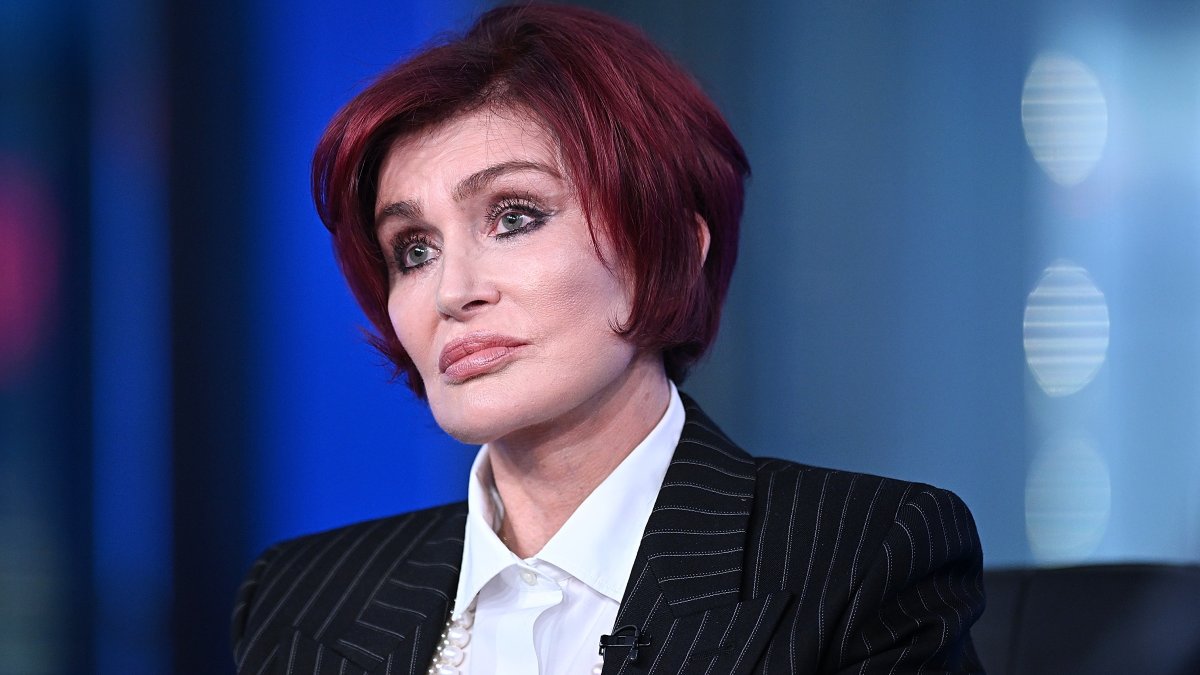
How A Woman Called Grandma Vodka Helped Create Return Of The Jedi’s Ewok Language – /Film
/Film has written about conlangs — or constructed languages — several times in the past. Hardcore “Avatar” fans may recall that language Professor Paul Frommer helped construct the Na’vi language for James Cameron’s franchise. (Frommer was also behind the Barsoomian language heard in “John Carter.”) Additionally, any good Trekkie will definitely be able to name Marc Okrand, the author of the extensive Klingon language, perhaps the most widely spoken of all conlangs. And, of course, readers of “Lord of the Rings” likely know that J.R.R. Tolkien based Quenya, his fictional Elf language, on the structure and syntax of Finnish. Space aliens and fantasy cultures have long allowed linguists to play around.
Although it may not be as celebrated or slavishly structured as Klingon or Dothraki (authored by David J. Peterson), Star Wars has its own conlang: Ewok. In 1982, during the production of the soon-to-be-hit film “Return of the Jedi,” sound designer Ben Burtt (the champion behind the indelible noises of lightsabers and X-wings) was tasked by story writer and producer George Lucas to invent a language spoken by the spear-wielding teddy bear-like aliens that aid the film’s heroes in the defeat of the Empire. Unlike his usual sound design tasks, however, Burtt had to make the Ewok language prior to production so that the actors could learn it and director Richard Marquand could pace a scene.
In a 2013 retrospective with MTV, Burtt recalled the task of inventing the Ewok language. As one might expect, the designer was far more concerned with the sound of the language than with a recognizable lexicon. In his research, Burtt came into contact with an elderly Mongolian tribeswoman who would tell folk tales in exchange for shots of vodka. This was the legendary Grandma Vodka.
‘If she had a little vodka she was happy to do so’
 Lucasfilm
Lucasfilm
In the MTV interview, Burtt recalled that he wanted to base the Ewok language on a language most of the English-speaking audience may be unaccustomed to hearing. He also was careful to select a language that fit the personality of the playful, cuddly aliens in question. He said:
“[By] ‘Jedi,’ we had somewhat refined the approach as to how I would create languages. […] It usually meant doing some research and finding an existing language or several languages which were exotic and interesting, something that our audience — 99 percent of them — would never understand. […] I’d find something that was fun and interesting and kind of made you smile when you listened to it.”
Burtt doesn’t say how he found the woman who would eventually be nicknamed Grandma Vodka, but he did describe his language auditions. He sought people who could tell folk tales in their native languages, and would ask for gentle recitations, listening for a certain cadence and tone that he felt sounded Star Wars-y. A woman in her 70s, who had just come to England from Inner Mongolia, came to Burtt’s attention, and he was fascinated by her and her speaking style:
“She had been really living in the wilderness — by comparative standards to us — all her life […] And [she] had just recently come over and immigrated and didn’t speak any English. She would come in and speak for us and if she had a little vodka she was happy to do so.”
Hence the nickname Grandma Vodka. She was, by Burtt’s recollection, a colorful and animated character; he not only liked her voice, but her outspoken speaking style.
The origins of Ewokese
 Lucasfilm
Lucasfilm
Burtt recorded Grandma Vodka speaking the Ewok language, distorted her voice, and used some of her vocals for the on-screen Ewok characters. Notably, she provided some of the vocals for Wicket, the film’s most prominent Ewok, played bodily by a young Warwick Davis. One can picture the playful, vodka-fueled chinwags with an elderly Mongolian woman, and Burtt recalls the experience well. He said:
“She was so expressive, she had a great laugh, she had a sing-songy kind of voice … and she really was a ham, I guess that’s the way to put it. […] And we got some wonderful recordings of her, and a lot of the recordings we had got from her were used for Wicket.”
Burtt said he “auditioned” languages from Sri Lanka, mainland India, and Tibet to find the sounds he wanted for the Ewoks. The little creatures’ spoken language, while not possessed of a vocabulary or syntax, bore vocal elements from all the above languages. It’s a collection of sounds more than a proper conlang.
Burtt also said that he preferred the vocal intonations of elderly women, saying that “[t]he voice, as it gets older, has a little more character to it; it gets raspier, gravellier. […] I found that these converted very well to alien creatures.”
Sadly, Burtt was ultimately dismayed to learn that the Ewok masks weren’t going to be terribly articulate, leaving the aliens’ lips and faces largely immobile. This required Burtt to dub in his Ewok language while the creatures were facing away from the camera. The many Ewok actors, however, were able to bodily act their lines, making their language perfectly convincing.
Eventually, the Ewoks were allowed to speak English in the 1985 “Ewoks” animated series, one of the less-celebrated Star Wars shows. Both seasons are currently available on Disney+.

























































